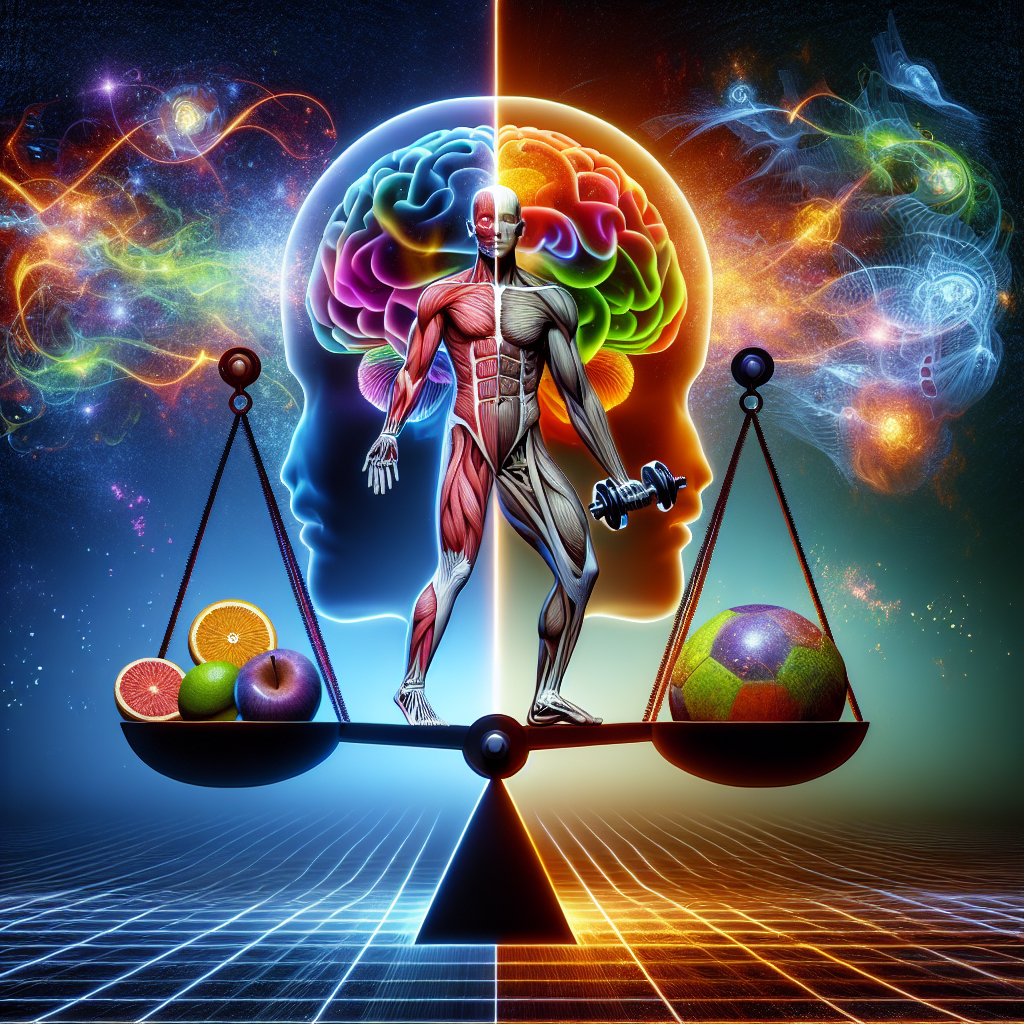Psychosomatic disorders are conditions that involve both the mind and body. These disorders are characterized by physical symptoms that are caused or exacerbated by psychological factors such as stress, anxiety, and emotional distress. Psychosomatic disorders can have a significant impact on physical health and overall wellbeing, leading to chronic pain, fatigue, and other physical symptoms that can interfere with daily life. In this article, we will explore the impact of psychosomatic disorders on physical health and wellbeing and discuss ways to manage and treat these conditions.
The Connection Between the Mind and Body
The mind-body connection is a complex and powerful system that influences our physical health and wellbeing. Psychosomatic disorders are a clear example of how our mental and emotional states can impact our physical health. When we experience stress, anxiety, or emotional distress, our bodies may respond with physical symptoms such as headaches, stomach pain, or muscle tension. These symptoms are real and can have a significant impact on our physical health and daily functioning.
It is important to recognize that psychosomatic disorders are not “all in your head.” They are legitimate medical conditions that require attention and treatment. In some cases, the underlying psychological factors may need to be addressed in order to alleviate the physical symptoms. This can involve therapy, stress management techniques, and other forms of mental health support.
Effects of Psychosomatic Disorders on Physical Health
Psychosomatic disorders can have a wide range of effects on physical health. Chronic stress, anxiety, and emotional distress can lead to a variety of physical symptoms, including:
– Chronic pain: Many people with psychosomatic disorders experience chronic pain, such as headaches, back pain, or muscle tension. This pain may be worsened by stress and emotional distress.
– Digestive problems: Stress and anxiety can affect the digestive system, leading to symptoms such as stomach pain, bloating, and diarrhea. These symptoms can be disruptive and uncomfortable.
– Fatigue: Emotional distress can contribute to feelings of fatigue and low energy. This can make it difficult to perform daily tasks and may impact overall quality of life.
– Immune system dysfunction: Chronic stress can weaken the immune system, making it more difficult for the body to fight off illness and infection.
– Sleep disturbances: Stress and anxiety can interfere with sleep, leading to insomnia or disrupted sleep patterns. This can further impact physical health and wellbeing.
Managing Psychosomatic Disorders
Managing psychosomatic disorders involves addressing both the underlying psychological factors and the physical symptoms. It is important to work with healthcare providers to develop a comprehensive treatment plan that addresses both aspects of the condition.
Therapy: Therapy, such as cognitive behavioral therapy (CBT), can be helpful in addressing the psychological factors contributing to psychosomatic disorders. Therapy can help individuals identify and cope with stress, anxiety, and other emotional issues.
Stress management: Stress management techniques, such as mindfulness meditation, deep breathing exercises, and progressive muscle relaxation, can help reduce stress and improve physical symptoms.
Physical activity: Regular exercise can help improve physical and mental health, reducing symptoms of psychosomatic disorders. Exercise can also help manage stress and improve overall wellbeing.
Healthy lifestyle habits: Eating a balanced diet, getting enough sleep, and avoiding harmful substances such as alcohol and tobacco can support physical health and wellbeing.
FAQs
Q: Are psychosomatic disorders serious medical conditions?
A: Yes, psychosomatic disorders are legitimate medical conditions that can have a significant impact on physical health and wellbeing. It is important to seek help from healthcare providers if you are experiencing symptoms of a psychosomatic disorder.
Q: How can I tell if my symptoms are related to a psychosomatic disorder?
A: If you are experiencing physical symptoms that seem to be related to stress, anxiety, or emotional distress, it may be a sign of a psychosomatic disorder. It is important to talk to a healthcare provider for a proper diagnosis and treatment plan.
Q: What can I do to manage symptoms of a psychosomatic disorder?
A: Managing symptoms of a psychosomatic disorder involves addressing both the underlying psychological factors and the physical symptoms. Therapy, stress management techniques, physical activity, and healthy lifestyle habits can all be helpful in managing symptoms.
In conclusion, psychosomatic disorders can have a significant impact on physical health and wellbeing. By addressing both the psychological and physical aspects of these conditions, individuals can work towards improving their overall health and quality of life. Seeking help from healthcare providers and developing a comprehensive treatment plan is essential in managing psychosomatic disorders.




Leave A Comment